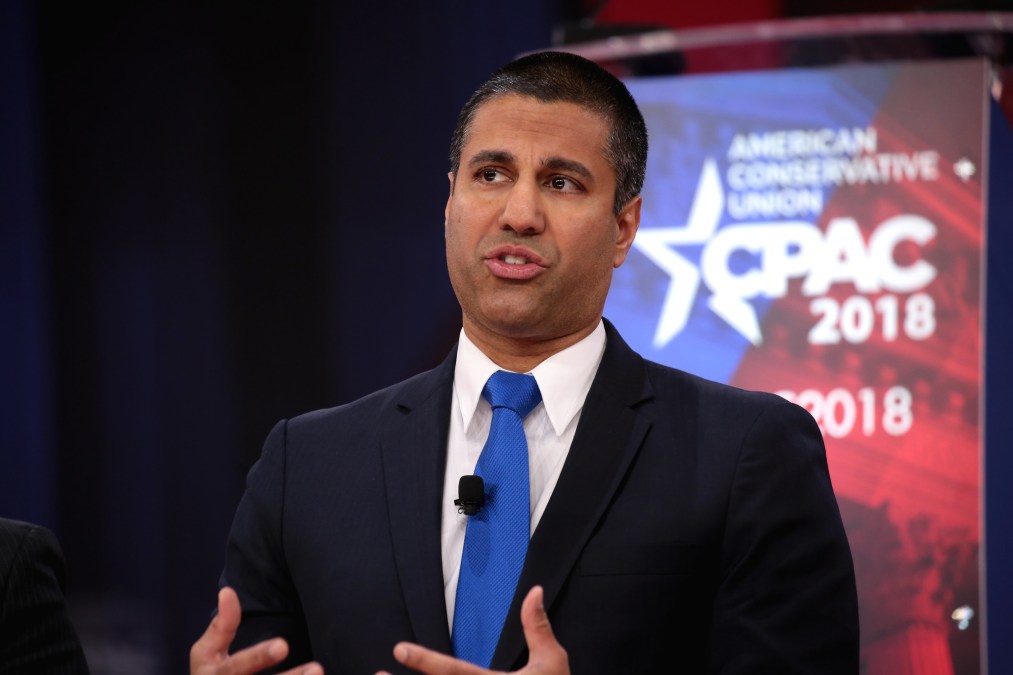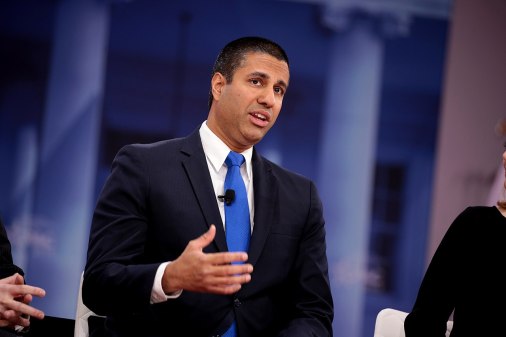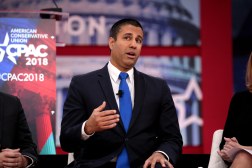FCC reveals plan to license educational spectrum to 5G carriers

A significant portion of mid-band spectrum historically dedicated to providing internet to K-12 educational institutions could soon be auctioned off to private carriers for 5G deployment, according to a draft order circulated by Federal Communications Commission Chairman Ajit Pai on Wednesday.
The FCC draft order would place 114 megahertz of 2.5GHz spectrum up for auction to carriers interested in using the airwaves to expand 5G service, which is currently available only through small-scale deployments in some cities. The spectrum traditionally has been dedicated to use by educational institutions through the Educational Broadband Service, or EBS, for more than 50 years. EBS currently serves nearly 10,000 schools and libraries.
The FCC hasn’t issued any new licenses since 1995, however. Half of country’s geography and 85 percent of the population remains unreached by EBS, according to the Schools, Health and Libraries, Broadband Coalition. Educational broadband advocates say that Wednesday’s draft order, which would abolish the “educational” requirement for companies that license the spectrum, would further harm communities already underserved by internet service providers.
“The draft order is downright harmful to students, schools and rural communities struggling to close the digital divide,” said Mark Colwell, a spokesperson for Voqal, a nonprofit group that advocates for EBS. “[Wednesday’s] order is a radical policy shift that denies schools an opportunity to access spectrum necessary to deploy broadband.”
Pai, a former Verizon lobbyist, issued a notice of proposed rulemaking last year that sought to eliminate “outdated educational use requirements,” for the spectrum. Wednesday’s order would alter leasing requirements and how the commission awards new licenses, leaving companies such as Sprint, which owns and leases 79 percent of all EBS and broadband radio service spectrum, free to quickly license unused spectrum. Under the current rules, licenses are awarded through what the FCC calls “priority windows,” giving local organizations the first shot at acquiring licenses. Pai said this change would give licensees greater flexibility.
“The truth is it will take years to finish licensing the band, delaying 5G and rural deployment,” Colwell said. “The Trump administration has made it clear the U.S. needs to win the race to 5G, so it is unfathomable to us why the agency would choose to conduct an auction versus issue licenses via priority windows.”
The Education Department asked the FCC earlier this month to maintain the current educational use requirements for awarding spectrum, citing a need to close the so-called “homework gap,” providing internet access to more students who currently lack it. Tribal nations and schools using EBS spectrum could reduce the rural homework gap by nearly 30 percent, according to SHLB, as opposed to a projected 1 percent reduction if wireless carriers are permitted to purchase the spectrum.
“We cannot understand why the FCC would overturn over 50 years of educational precedent based on exaggerated claims by the commercial carriers that they will deploy 5G in these rural markets,” said John Windhausen Jr., executive director of the SHLB Coalition. “[Our study] estimates that commercial carriers will only deploy 5G in 24 of the 78 unserved markets, whereas educational institutions would serve almost all of them.”
The FCC will vote on the order at its next open meeting on July 10. If the order is affirmed, wireless auctions would begin next year.




